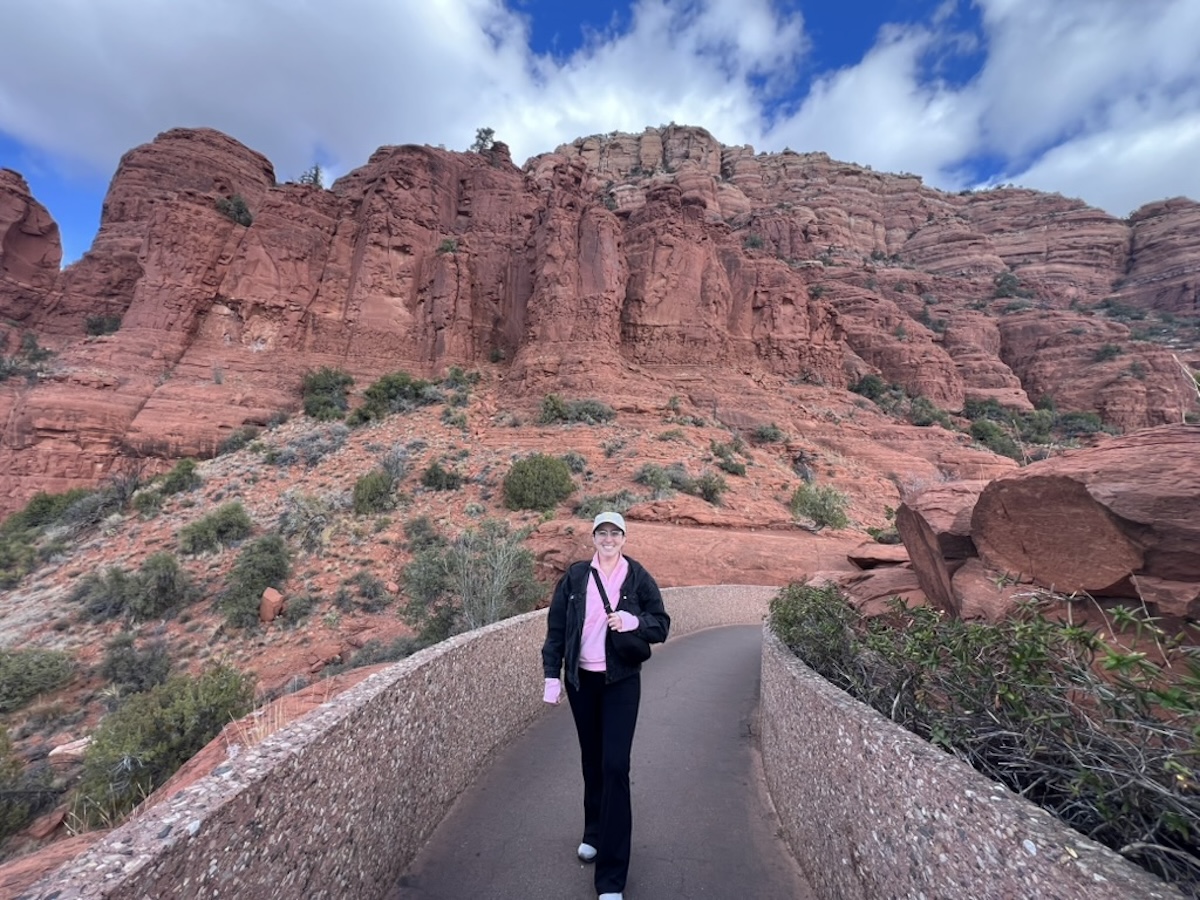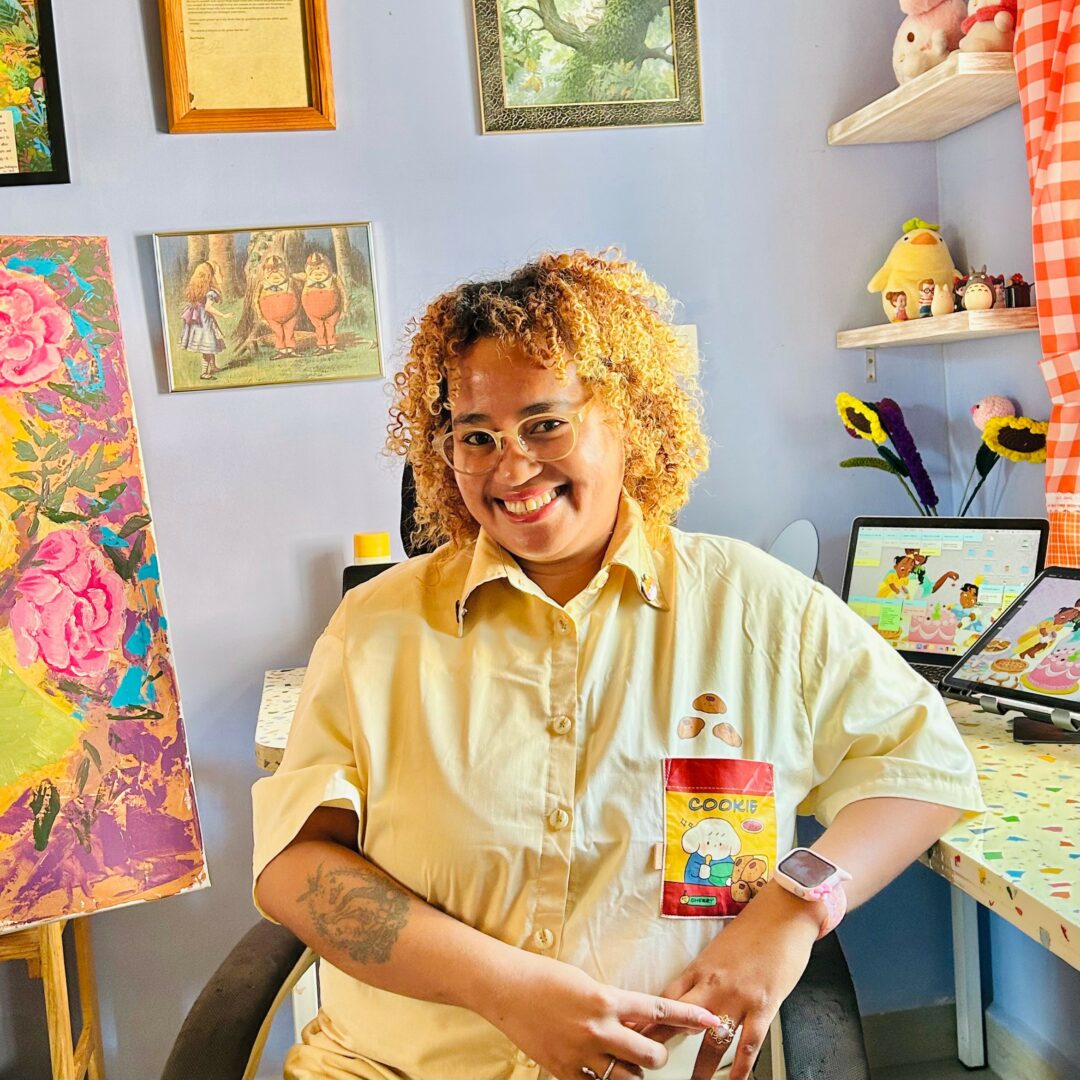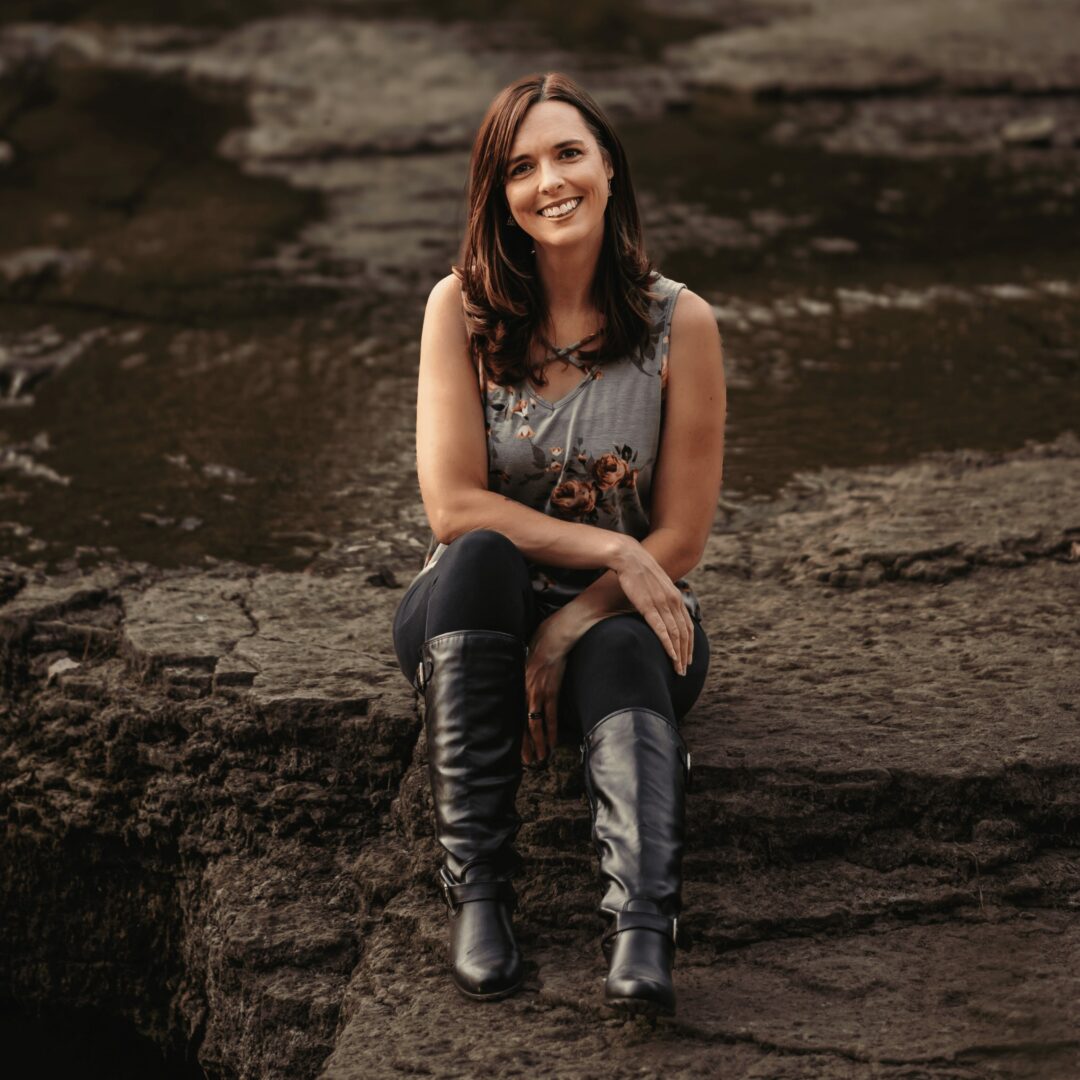We’re excited to introduce you to the always interesting and insightful Angela Panek. We hope you’ll enjoy our conversation with Angela below.
Angela, so good to have you with us today. We’ve always been impressed with folks who have a very clear sense of purpose and so maybe we can jump right in and talk about how you found your purpose?
I found my purpose at the age of 12. I was hospitalized with a virus that never really got diagnosed. This virus caused severe dehydration—so much so that the doctors said I might not have survived without immediate fluids. One of the potential procedures they discussed was a lumbar puncture, or “spinal tap,” to collect fluid from my spine to aid in diagnosis and treatment.
I vividly remember the young doctor who came into my room to explain the procedure. He had kind eyes and curly hair and took the time to sit beside me on the bed, walking me through every step with patience and kindness. Ultimately, I didn’t need the procedure, but his compassion made an indelible impression on me. That experience solidified my dream of becoming a doctor.
Soon after this hospitalization, I threw myself into every opportunity to learn about medicine. I became a hospital volunteer, or “candy striper,” likely logging more hours than was technically allowed for someone my age. I participated in a high school athletic training program and joined a search-and-rescue group through the Boy Scouts’ Explorer program.
My first semester in college, I chose a lot of science heavy courses and my resulting GPA reflected that. Even though I brought my GPA up quite a bit by graduation, it wasn’t going to be enough to compete with others for a spot in medical school. That event changed my eventual career path.
During my college years, I volunteered for a Camp Wapiyapi, a camp for children with cancer and their siblings. Giving them a fun week in the summer; an escape from their diagnosis and treatments was an amazing time in my life and reaffirmed my desire to help others.
After graduation, as I worked through the disappointment of realizing medical school wasn’t an option, I kept asking myself, “Why did I want to be a doctor?” The answer was always the same: to help people and to pay forward the compassion that doctor had shown me.
This led me to a new question: “Who else helps people in the medical field?” The answer was clear—Physician Assistants (PAs) and Nurses. Becoming a PA would have been the faster and more straightforward path—just three years of school before starting to practice. But something in my gut pulled me toward nursing. I trusted that instinct and was accepted into Regis University’s accelerated nursing program, completing it in just one year. It was one of the best decisions I’ve ever made.
I began my nursing career on a medical-surgical floor, working the challenging night shift. After a year, I transitioned to outpatient pediatric oncology, where I discovered my love for building relationships with patients. Over the next decade, I worked in both pediatric and adult oncology, finding fulfillment in the connections I formed with those I cared for.
In 2013, I decided to advance my education and became a Nurse Practitioner (NP). I completed the program two years later, again from Regis University. I started in primary care, but by 2017, I noticed an increasing number of women coming to me with menopausal symptoms. Lacking the tools to help them, I referred them to specialists. At the time, I was seeing a hormone specialist myself, and she recommended Neal Rouzier’s WorldLink Medical courses on hormone replacement therapy (HRT). The knowledge I gained from these courses revolutionized my practice. Contrary to what I’d learned in school, hormones aren’t inherently dangerous. Applying these new concepts, I began seeing remarkable improvements in my patients’ quality of life. Witnessing their transformations ignited a passion for this work.
Today, I couldn’t be happier that life led me to become a Nurse Practitioner and specialize in hormone replacement therapy. Helping women rediscover themselves and feel like themselves again is deeply rewarding. I’m grateful for the journey that brought me here and for the incredible patients I get to work with every day.

Great, so let’s take a few minutes and cover your story. What should folks know about you and what you do?
My journey to opening Sage Rose Health is deeply tied to my purpose.
In August 2024, I took the leap and opened my private practice after years of wondering if I could—and delaying because of self doubt. The tipping point came when a patient submitted me as a “recommended provider” to a prominent OB/GYN with a large social media presence focused on menopause treatment. That recommendation led to an influx of referrals, both through the OB/GYN’s platform and word of mouth. Soon, nearly every new patient I saw in the primary care clinic was a woman struggling with menopausal symptoms.
It became clear that I was making a difference in these women’s lives. Their positive outcomes and the trust they showed by recommending me to others planted the seed for starting my own practice.
Opening Sage Rose Health has been an incredible but challenging journey. It’s been filled with steep learning curves, moments of doubt, and even tears. But now that Sage Rose Health is open and growing, I feel an overwhelming sense of pride, accomplishment, and resilience.
Naming my practice was a meaningful decision. I chose “Sage Rose Health” in honor of my mother (her middle name and a trait she emulated, wisdom), who passed away on her 66th birthday, succumbing to a bone marrow cancer similar to leukemia. During her illness, I promised her I would complete my NP degree in spite of her illness —and I kept that promise.
At Sage Rose Health, I specialize in treating women and men for symptoms related to menopause and andropause. My approach is holistic: I explore various factors that may be contributing to their symptoms and focus on achieving optimal blood levels—not just what’s considered “normal.” I believe in shared clinical decision-making, where I truly listen to my patients, educate them, provide recommendations, and support them in the choices they make for their health.
Opening this practice has been a humbling and rewarding experience. It’s a reflection of my commitment to helping patients feel like themselves again.
There is so much advice out there about all the different skills and qualities folks need to develop in order to succeed in today’s highly competitive environment and often it can feel overwhelming. So, if we had to break it down to just the three that matter most, which three skills or qualities would you focus on?
I’m deeply grateful that I finally moved beyond the self-doubt that held me back from opening my practice for nearly six years. While I regret letting that doubt delay me for so long, I’m thankful I eventually quieted that negative voice enough to take the first step. Never give in to that voice—it exists to keep you small and prevent you from growing.
I’ve come to appreciate my ability to learn new skills, even when the process frustrates me. I tend to get upset with myself when I’m not immediately good at something, but I’ve learned to push through those moments. I keep trying, and eventually, I figure it out. Building my website was a prime example—filled with trial and error but ultimately it was rewarding. Now, I’m navigating how to create ads and content, proving that persistence can make even the seemingly impossible achievable. When you finally succeed, the pride you feel makes every struggle worthwhile.
I’ve always had a unique way of processing how others viewed me. As a child, I now realize I experienced bullying, though at the time, I didn’t recognize it for what it was. Somehow, it didn’t define or diminish me. It’s not that I didn’t care—I just held onto an almost blind optimism, a belief that people couldn’t be that cruel. That perspective helped me compartmentalize the negativity and focus on my own sense of self. Looking back, I see how that resilience shaped me, allowing me to move forward without being weighed down by others’ judgments.
Before we go, any advice you can share with people who are feeling overwhelmed?
When I get overwhelmed, I cry. The tears come without warning and can’t usually be stopped—it’s the release I need to let the frustration out. While it makes my husband uncomfortable because he doesn’t know how to help, for me, it’s a necessary pause. The tears force me to step back and take a moment. That break somehow resets my approach, and when I try again, I eventually figure it out.
Talking through the problem can also be incredibly helpful. I’ve lost count of how many times I’ve rambled at my husband or father as they patiently listened. Just vocalizing the issue often allows me to hear it in a new way. It’s like therapy—sometimes simply stating the problem out loud brings clarity. More often than not, it leads me to a decision or a solution.
And then there’s asking for help. Sometimes you just don’t have all the answers, and that’s okay. A fresh perspective, a different set of eyes, or someone with unique knowledge can make all the difference. You don’t have to climb every mountain alone. Reaching out for support isn’t a weakness—it’s a smart way to move forward.
Contact Info:
- Website: https://www.sagerosehealth.com
- Instagram: sagerosehealth
- Facebook: Sage Rose Health
Image Credits
Zara Ashby
so if you or someone you know deserves recognition please let us know here.




